


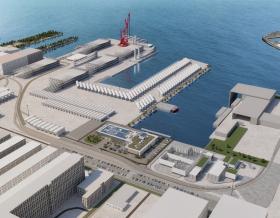

At Jacobs, we're challenging today to reinvent tomorrow by solving the world's most critical problems for thriving cities, resilient environments, mission-critical outcomes, operational advancement, scientific discovery and cutting-edge manufacturing, turning abstract ideas into realities that transform the world for good. With approximately $16 billion in annual revenue and a talent force of more than 60,000, Jacobs provides a full spectrum of professional services including consulting, technical, scientific and project delivery for the government and private sector.

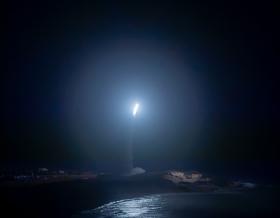

For more than 70 years, our teams have provided integrated solutions to help solve the most complex and hazardous challenges of space exploration. We invent by imagining what’s possible.



A curated selection of some of the top-listened to and trending podcast episodes from our popular If/When podcast series, which has over 6M downloads to date.


Sit down with our visionary team of thinkers, dreamers and doers to see what a day in the life is like.
.jpg?h=c7c14dee&itok=FmPI2126)


As our clients navigate the digital transformation and growing cyber risks, we have positioned ourselves at the forefront of this growth, adding digital capabilities, products and tools to serve a growing set of customers.



Together with our visionary partner, PA Consulting, we're establishing our position in high end advisory services, creating a springboard to expand in high value offerings beyond the core.



The only certainty about the future is uncertainty. Resilience is an attribute of a smarter planet, and requires planning and adapting ahead of potential threats. We help our clients survive, recover, adapt and thrive.



Jacobs. A world where you can.



As a purpose-led company, we know we have a pivotal role to play in addressing the climate emergency. We consider this not only good business, but our duty to channel our technology-enabled expertise and capabilities toward benefitting people and the planet.



For more than 30 years, Jacobs has been responsible for planning and implementing Lead and Copper Rule-related strategies which protect millions of people in the U.S. and Canada. Our work includes enhanced water quality monitoring strategies, sampling plan development, harvested pipe-scale analysis, lead service line inventories and replacement plans, corrosion control studies and the incorporation of equity and environmental justice considerations into compliance programs.

_0.jpg?h=8a6d63f3&itok=5vsqFiQH)

Jacobs is working to help clients across the United States secure federal funding for projects that make our cities and communities more connected and sustainable. Working hand-in-hand with clients from coast to coast and everywhere in between, Jacobs develops bold, innovative solutions to address the nation’s toughest challenges.



Now more than ever, we appreciate the hard work, sacrifice and dedication of the medical profession in ensuring the health and safety of our communities.



Together, we are stronger. Together, we can transform the future.


.png?h=1314d3d4&itok=rFs9mG95)
We work in partnership, delivering some of the most challenging, diverse and innovative projects and programs globally across multiple sectors. We integrate complex interfaces across planning, procurement and delivery to help unlock better social, environmental and economic outcomes from mega and giga projects.



We’ve provided design-build services to the water sector for over 25 years and delivered more than 150 projects. We offer fully integrated design-build and design-build-operate capabilities to tackle the most complex water challenges and work in close collaboration with our clients.



As climate change threatens water security around the world, more communities are turning to water reuse as a resilient water supply solution and embracing the OneWater principle that all water has value. Jacobs has been supporting clients with water reuse programs for decades, beginning with the first applications of advanced wastewater treatment technologies in the 1960s. We provide our clients with a full range of services, from water reuse feasibility studies to design, construction and operations.



Jacobs’ deep experience with advanced technology systems and our wide-ranging program support capabilities make us a premier partner at locations across the world. We deliver the right talent, tools and processes to support and enable our customers’ missions.
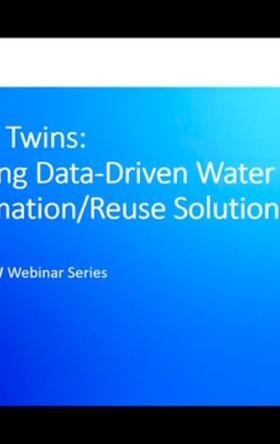


The National Air and Space Museum's One World Connected exhibit will tell the story of how flight fostered two momentous changes in everyday life: the ease in making connections across vast distances and a new perspective of Earth as humanity’s home. Below are some stories from Jacobs that also highlight the connections and digital solutions we are making around the world.



Stories that capture our partnerships and innovative impact for a more connected, sustainable world


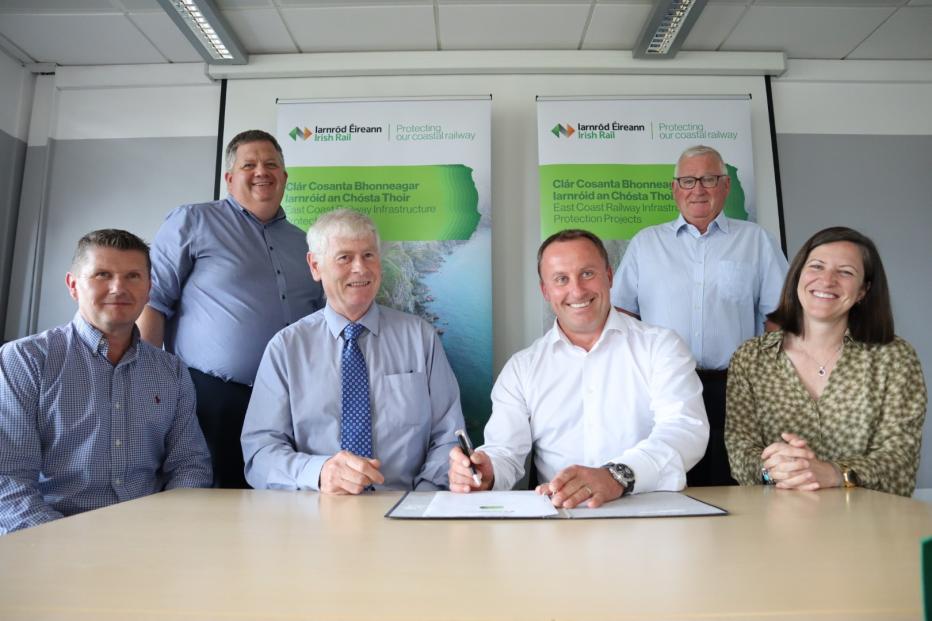
Iarnród Éireann Irish Rail has awarded Jacobs the commission for detailed design and planning services, including environmental assessments and statutory submissions for the East Coast Railway Infrastructure Protection Projects (ECRIPP) program. ECRIPP is required to defend long sections of the essential Dublin to Rosslare coastal rail line from coastal erosion and flooding for the next 100 years.
ECRIPP will be the largest coastal protection scheme in North-Western Europe.
The South-East railway carries DART and mainline services and runs for 104 miles (168 kilometers) to Rosslare. Just under half of the route length (47.8 miles or 77 kilometers) runs adjacent to a coastal or estuarine environment making it vulnerable to the impact of climate change. ECRIPP is planned to defend the railway infrastructure and boost coastal resilience in the face of a changing climate with its associated rising sea levels.
The frequency of track washout, where the sea has eroded the land supporting the railway, along with wave overtopping onto the tracks, has increased in the last 20 years. These incidents have had significant impacts on performance and safety as well as major losses of land and habitats.
Options such as breakwaters, beach nourishment, onshore revetment strengthening, and other interventions will be subject to detailed design and modelling in the first phase of the program. Irish Rail expects the projects to be completed as separate cells in stages within seven years.
“Our studies have identified that in the last 20 years there have been more storm events than there have been in the last 100 years, thereby increasing and accelerating the erosion rates and the climate change impacts. ”
Aidan Bermingham
Irish Rail Infrastructure Program Manager
“Climate change is having a dramatic impact on the transport route and local area. Protecting the Dublin to Rosslare coastal line will build long-term resilience and preserve vital connectivity, local economies, and communities, while benefiting the next generation.”
Dominic Lynch
Jacobs Vice President Buildings & Infrastructure Ireland
“Our studies have identified that in the last 20 years there have been more storm events than there have been in the last 100 years, thereby increasing and accelerating the erosion rates and the climate change impacts,” says Irish Rail Infrastructure Program Manager, Aidan Bermingham. “Without this project we would just be fixing it all the time and that incurs problems such as getting access to land. There is a risk there would be pockets where the embankment would become unstable, and we would never let it get to that stage.”
“Our support will focus on environmentally-led design, with careful attention to the environmental sensitivities of the local area,” explains Jacobs Vice President Buildings & Infrastructure Ireland, Dom Lynch. “Climate change is having a dramatic impact on the transport route and local area. Protecting the Dublin to Rosslare coastal line will build long-term resilience and preserve vital connectivity, local economies, and communities, while benefiting the next generation.”
Jacobs is a global leader in delivering coastal resilience projects, that are cost effective and put sustainability at the core of decision making. Around the world, Jacobs delivers major transportation projects as part of integrated infrastructure solutions that encompass transport planning and modelling, environmental solutions, intelligent mobility, connected vehicle and other emerging technology to full project life cycle transport infrastructure management.
Image caption:
Seated left to right: Iarnród Éireann IM Department Head of Programs and Projects, Michael Danaher; Iarnród Éireann Director Infrastructure Manager, Éamonn Ballance; Jacobs Vice President Buildings & Infrastructure Ireland, Dominic Lynch; and National Transport Authority Heavy Rail Program Manager, Tamara Vazquez.
Standing left to right: Iarnród Éireann IM Department ECRIPP Program Manager, Aidan Bermingham; and Jacobs Project Manager, Joe Magee.
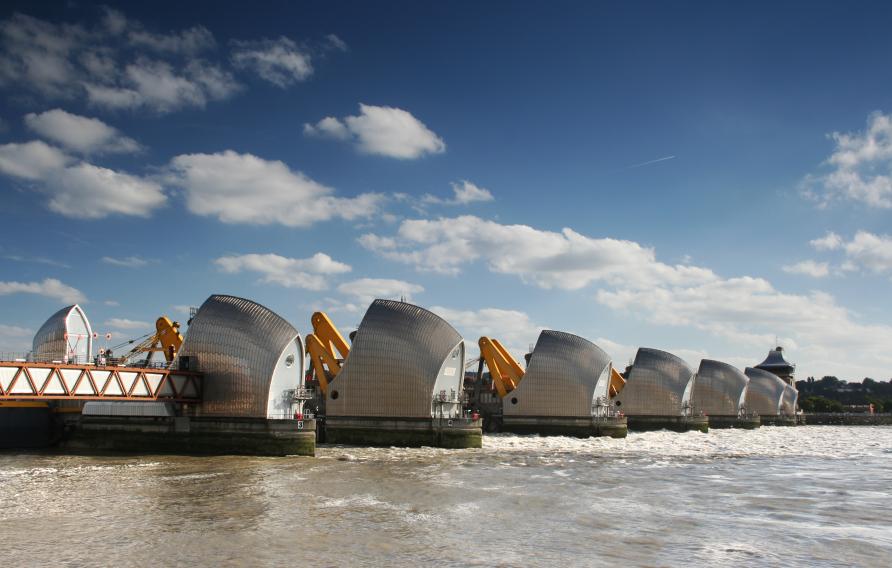
Jacobs is continuing to support the Environment Agency in implementing its Flood and Coastal Erosion Risk Management (FCERM) Strategy through providing flood and coastal risk management expertise on three key national projects.

Net zero requires action in two directions. On the one side, organizations must work to significantly reduce the release of emissions. On the other, they must support the removal of continued emissions from the atmosphere once decarbonization measures have been implemented. Nature-based solutions – also known as natural climate solutions - have a significant role to play in achieving net zero, spanning both emission reductions and removals.

Jacobs has been selected as a design consultant for Northern Ireland Water's (NI Water) Major Project Partnership Framework, which will deliver large-scale water and wastewater projects across Northern Ireland.